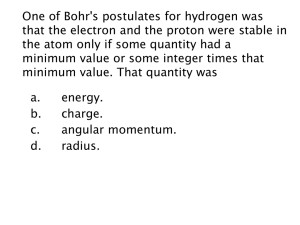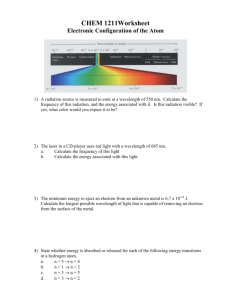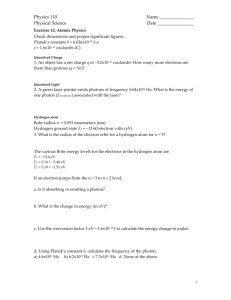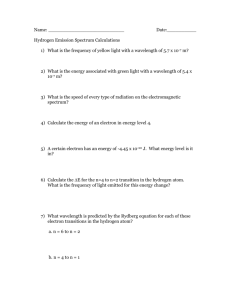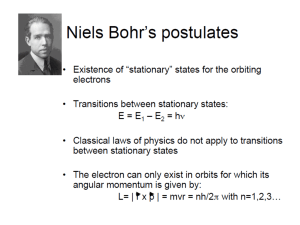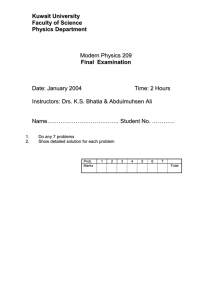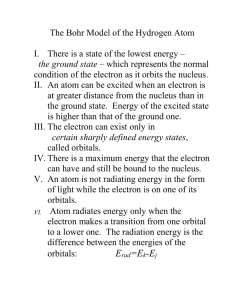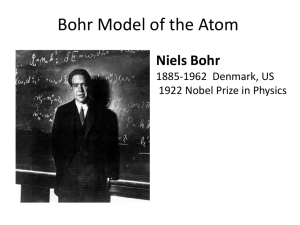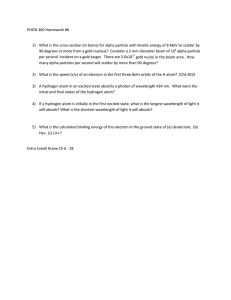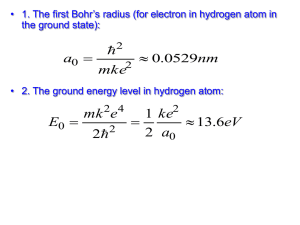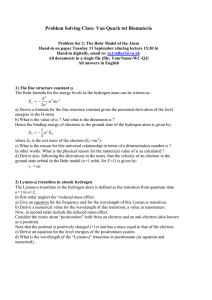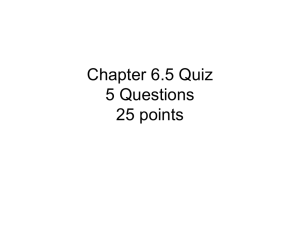Discussion Session on Bohr`s atom, Shroedinger
advertisement
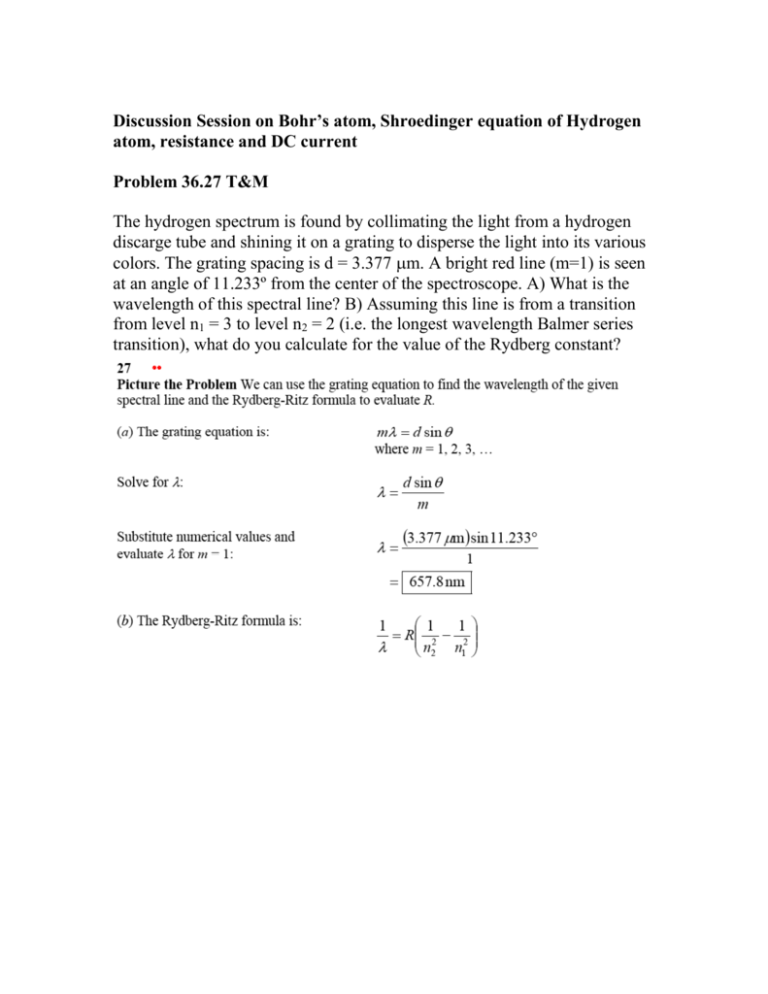
Discussion Session on Bohr’s atom, Shroedinger equation of Hydrogen atom, resistance and DC current Problem 36.27 T&M The hydrogen spectrum is found by collimating the light from a hydrogen discarge tube and shining it on a grating to disperse the light into its various colors. The grating spacing is d = 3.377 m. A bright red line (m=1) is seen at an angle of 11.233º from the center of the spectroscope. A) What is the wavelength of this spectral line? B) Assuming this line is from a transition from level n1 = 3 to level n2 = 2 (i.e. the longest wavelength Balmer series transition), what do you calculate for the value of the Rydberg constant? Conceptual Problem According to Bohr’s model of H atom, what is the uncertainty in the radial coordinate of the electron? What is the uncertainty in the radial component of the velocity of the electron? In what way does the model violate the uncertainty principle? Problem T&L 4.30 What is the minimum potential difference that must be applied across an X-ray tube in order to observe the K line of tungsten (Z = 74)? [Hint: the minimum potential corresponds to the energy required to remove the K electron from the atom, hence to the minimum wavelength that can be obtained for ni =.] Problem 7.17 T&L A hydrogen atom is in the 6f state. a)What are the values of n and l? b) Compute the energy of the electron. c) Compute the magnitude of L. d) Compute the possible values of Lz in this situation. Problem 7.20 T&L For the ground state of the hydrogen atom, find the probability of finding the electron in the range r = 0.03 a0 at a) r = a0 and at b) r = 2a0. Problem 7.26 T&L Show that an electron in the n = 2, l = 1 and m = 0 state of the hydrogen atom, is most likely to be found at r = 4a0.
